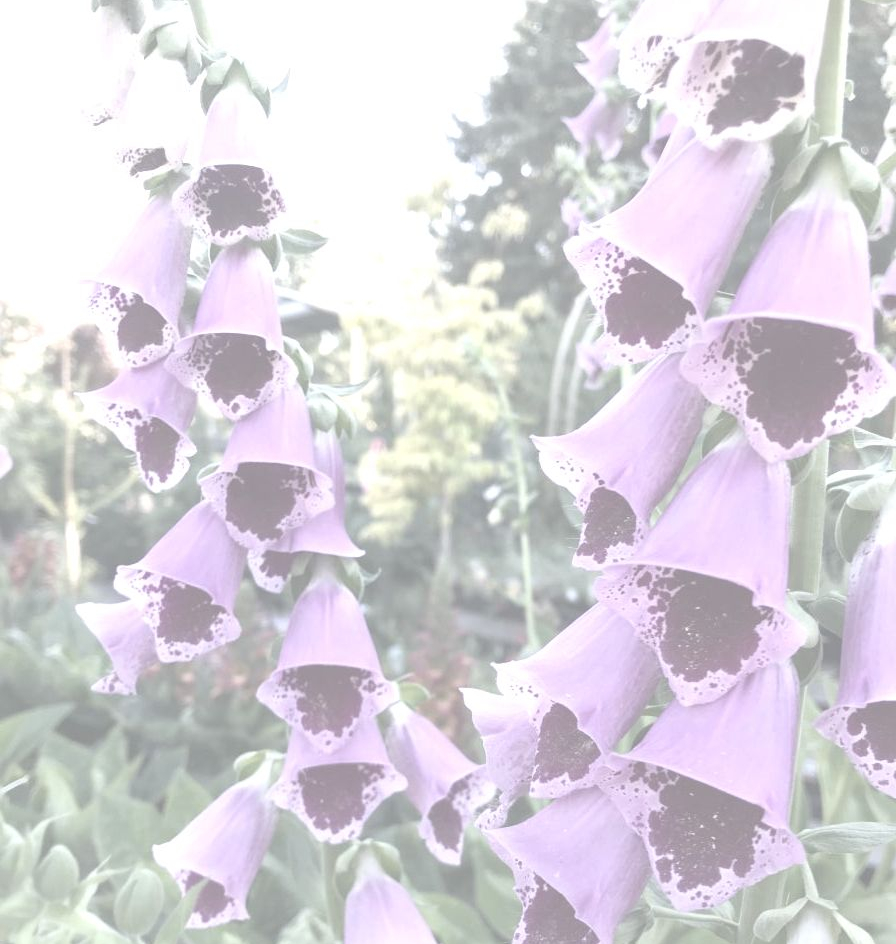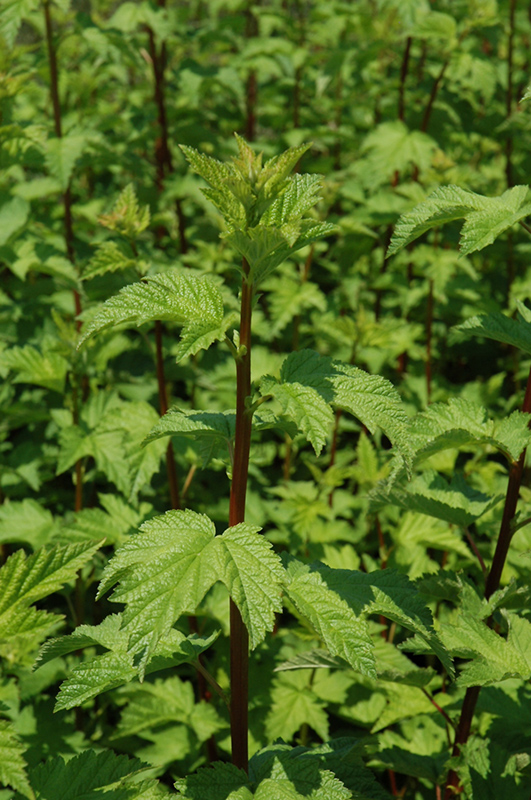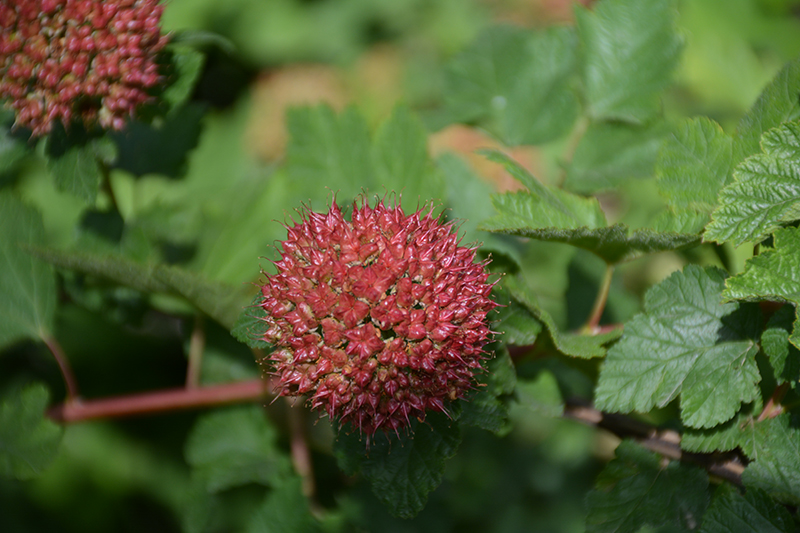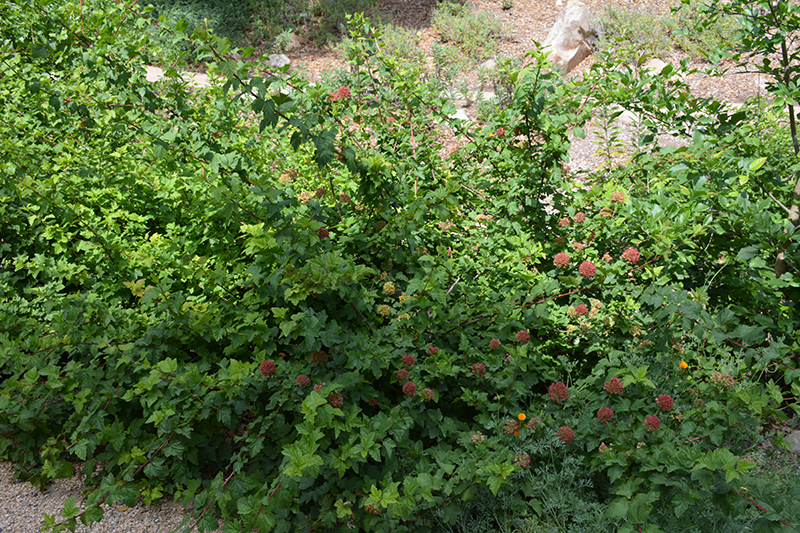Height: 10 feet
Spread: 10 feet
Sunlight:
![]()
![]()
Hardiness Zone: 7a
Description:
A fast growing medium sized shrub with lobed, maple-like leaves; white flower clusters in spring and interesting peeling papery bark for winter effect; prefers moist locations and should be pruned to maintain shape
Ornamental Features
Pacific Ninebark features showy cymes of white flowers at the ends of the branches from early spring to early summer. It has green deciduous foliage. The serrated lobed leaves turn outstanding shades of gold and orange in the fall. It produces red capsules from early to mid fall. The peeling tan bark is extremely showy and adds significant winter interest.
Landscape Attributes
Pacific Ninebark is a multi-stemmed deciduous shrub with a more or less rounded form. Its relatively coarse texture can be used to stand it apart from other landscape plants with finer foliage.
This shrub will require occasional maintenance and upkeep, and can be pruned at anytime. It has no significant negative characteristics.
Pacific Ninebark is recommended for the following landscape applications;
- Accent
- Mass Planting
- Hedges/Screening
- General Garden Use
Planting & Growing
Pacific Ninebark will grow to be about 10 feet tall at maturity, with a spread of 10 feet. It has a low canopy, and is suitable for planting under power lines. It grows at a medium rate, and under ideal conditions can be expected to live for approximately 30 years.
This shrub does best in partial shade to shade. It prefers to grow in moist to wet soil, and will even tolerate some standing water. It is not particular as to soil type or pH. It is highly tolerant of urban pollution and will even thrive in inner city environments. This species is native to parts of North America.



